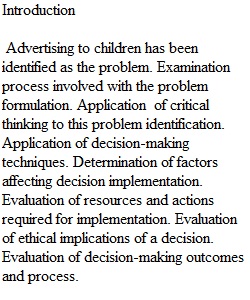


Q Learning Objectives • Examine the process involved with problem formulation. • Apply critical thinking to problem identification. • Apply decision-making techniques. • Determine factors affecting decision implementation. • Evaluate resources and actions required for implementation. • Evaluate ethical implications of a decision. • Evaluate decision-making outcomes and processes. Prompt Examine a business issue of your choosing that has ethical implications. • For example, research the arguments (both for and against) regarding advertising to children, paying a living wage, requiring union membership, or selling tobacco. Research and present the leading opinions and comment on the validity of the arguments. Which side is more compelling? Why? Instructions • Develop a 16 to 18 slide PowerPoint presentation • Include detailed speaker notes for each slide OR present your slides via Video and submit the link for the video with your slide deck • Support your presentation with a minimum of 3 credible academic references, properly incorporated into the body of the work (speaker notes, footer, after bullet point). Grading Rubric: A rubric is provided for your convenience that details how this assignment will be graded. Please review it carefully prior to submitting your assignment. If the grading rubric does not auto-populate here, please see it by visiting the Assignment details under Course Tools.
View Related Questions